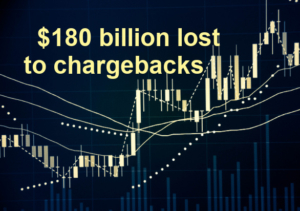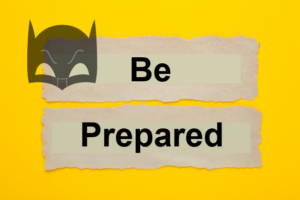The platform’s weakened protections leave sellers newly vulnerable to friendly fraud
By Roenen Ben-Ami, Co-founder & Chief Risk Officer, Justt.ai
PayPal has been around since the earliest days of the dot-com boom, and the digital payments giant remains the 800-pound gorilla in the room. With over 400 million active users, a quarterly transaction volume of over $1.6 trillion, and a 79% market share among major US and European retailers, PayPal is the undisputed top dog in the digital wallet space.
But while PayPal is clearly doing plenty right, there’s one area where merchants using the digital payment platform have a real problem: their increasing exposure to friendly fraud. Under PayPal’s recent Seller Protection Program rules, merchants now have markedly less protection against credit card chargebacks, leaving them newly vulnerable to transaction reversals.
The cost of PayPal chargebacks

The new rules are potentially a big deal for merchants. As things stand, sellers are losing around $180 billion per year to chargebacks, so any exposure increase will cut into merchants’ much-protected profit margins.
Part of the problem is that “Item Not Received” chargebacks are particularly easy for fraudsters to abuse. A buyer can wait until a product is delivered, then simply claim they never received it — and in most cases, they’ll keep both the product and the money they paid for it.
Such behavior is especially prevalent among Gen Z shoppers, 42% of whom admit to having filed fraudulent claims at some point. By contrast, only about 5% of Baby Boomers can say the same. That’s troubling for merchants, given that Gen Z consumers are 50% more likely than Boomers to use digital wallets like PayPal.
Clearly, merchants can’t simply sit on their hands and hope for the best — or count on PayPal to have their backs if consumers start filing bogus chargeback claims. Instead, sellers must be proactive about protecting their businesses from fraud.
How to protect your business

That starts with collecting as much data as possible about each transaction you complete via PayPal. It might sound obvious, but as a digital merchant, you must track (and, whenever possible, verify) the information you’re being given, including the buyer’s name, address, credit card information, and more. The more information you collect, the easier it will be to validate a transaction and defend yourself against a subsequent chargeback.
Next, it’s important to use PayPal’s infrastructure effectively to ensure their Seller Protection Program covers you to the fullest extent. For instance, that might include using the PayPal goods-and-services QR code to receive payments for in-store transactions. It also applies to shipping processes: you must ensure you’re only shipping to the address listed on the PayPal transaction page since redirecting shipments to alternate addresses could mean the platform’s protection policies won’t apply.
Since PayPal’s new rules specifically weaken merchants’ protection for undelivered shipments, it’s also vital to ensure you aren’t taking any shortcuts regarding fulfillment. Always use a reliable, well-reviewed brand-name shipping service — and don’t forget to track the progress of the package. If things go wrong, you’ll need to be able to document when the product was dispatched and provide proof of delivery.
Finally, make sure you’re responsive whenever the PayPal team requests information or sends you messages of any kind. Letting important messages or requests for documentation go unanswered will make chargeback cases harder to win and could hurt your relationship with PayPal going forward.
Think like a good Boy Scout
The bottom line is that when you’re selling on PayPal, it pays to remember the Boy Scout motto: “Be Prepared.” The payment platform’s new rules underscore that when it comes to selling online, every merchant needs to take full responsibility for collecting and managing transaction information and be proactive about protecting themselves against friendly fraud.

Of course, this all probably sounds like a lot of unwanted administrative work. There’s no getting around the fact that collecting and managing transaction data can be burdensome. Analyzing, documenting, and responding to chargebacks and PayPal disputes add another layer of complication and time-consuming work. That’s precisely why so many bogus chargebacks aren’t successfully contested: getting the right information to the right people at the right time and staying on top of all the processes and protocols required by PayPal and card providers is — to be frank — a colossal pain for merchants to manage.
The good news, however, is that while PayPal weakens its payment protections, merchants aren’t in this on their own. New fintech providers are developing chargeback mitigation solutions to help sellers track and manage relevant data more easily and reduce their exposure to friendly fraud. Third-party data also has a vital role, helping sellers effectively document and demonstrate that transactions were handled and shipments sent and received correctly, making it easier to surface any misrepresentations made by fraudsters.
So yes, as PayPal softens its protections, merchants must be prepared. But they shouldn’t try to fly solo. Chargebacks are incredibly complex, and the more time and money merchants dedicate to building in-house mitigation functions, the fewer resources they’ll be able to devote to selling more products. In a world of growing friendly fraud, building strong partnerships with qualified fintech and data specialists is one of the best ways to protect your business.
About the Author

Roenen Ben-Ami, Co-founder and Chief Risk Officer of Justt.ai,
is an expert in the field of payments and chargeback mitigation.
Previously, Roenen led the Chargeback and Merchant Risk teams
at fiat/crypto pioneer Simplex.
Recent PaymentsNEXT news:
From data to decisions: Five steps to making payments data work for you

